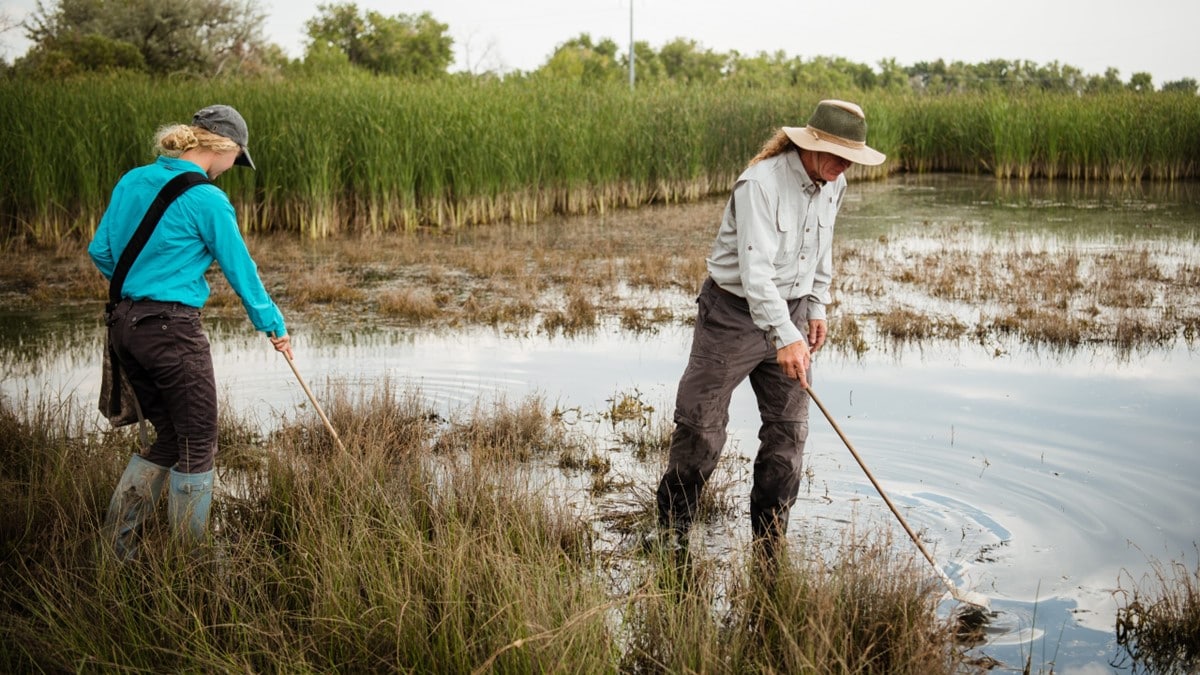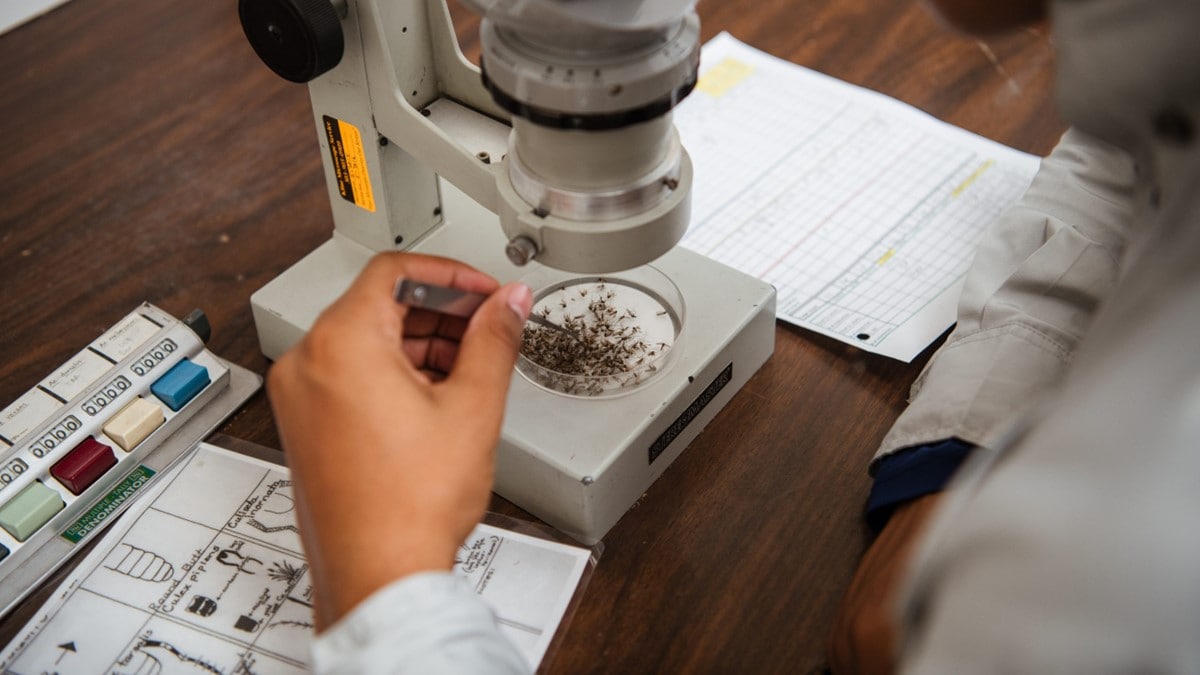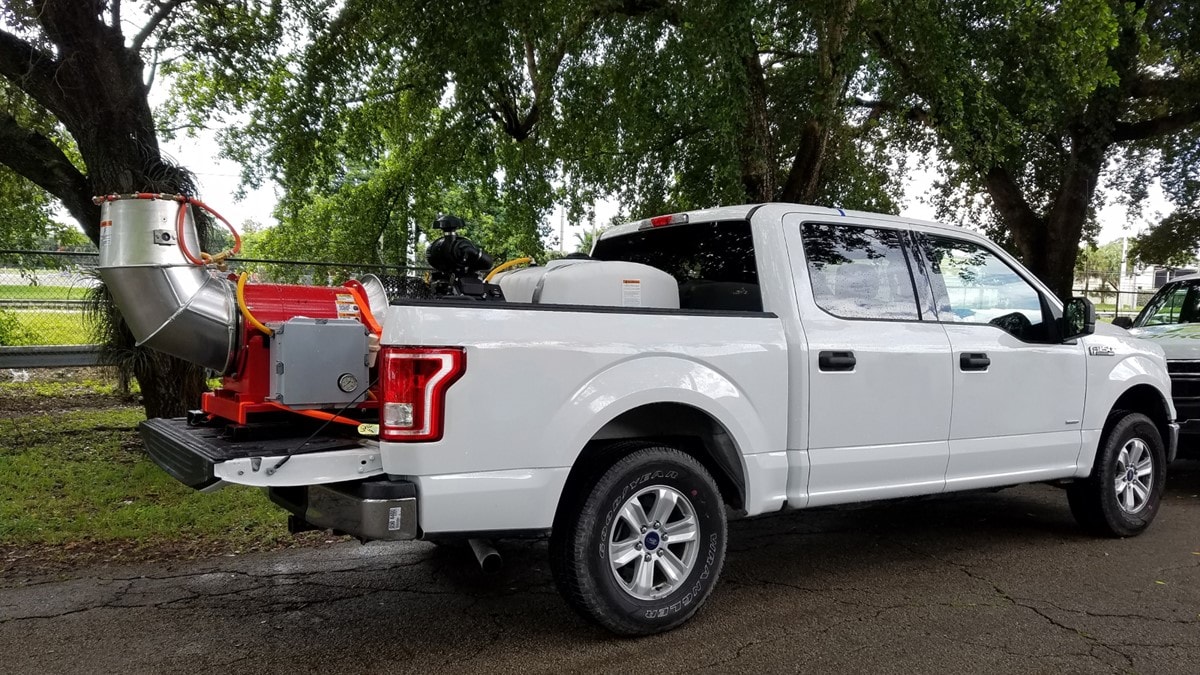Key points
- Local governments and mosquito control districts or programs conduct mosquito control.
- Professionals use multiple methods to prevent and control mosquitoes that spread viruses such as West Nile and dengue.
- Control methods are scientifically proven to reduce numbers of mosquitoes.

Use multiple methods to control mosquitoes
Local governments and mosquito control programs often use integrated mosquito management (IMM), also called integrated pest management or integrated vector management.
IMM uses a combination of methods to control mosquitoes based on an understanding of mosquito biology and the mosquito life cycle. IMM uses methods that, when followed correctly, are safe and scientifically proven to reduce numbers of mosquitoes.
Mosquito control professionals conduct mosquito surveillance, remove places where mosquitoes lay eggs, control mosquito larvae and pupae, control adult mosquitoes, and monitor control efforts. Mosquito control efforts and capabilities vary across the United States.
Conduct surveillance
Mosquito surveillance helps local governments and mosquito control districts or programs determine when, where, and how to control mosquitoes before people start getting sick. Professionals want to know
- How many mosquitoes are in the area.
- What types of mosquitoes are living in an area.
- Where sources of standing water are located.
- Types of germs mosquitoes may be spreading.
- Which Environmental Protection Agency (EPA)-registered insecticides will effectively kill local mosquitoes.
- Whether current mosquito control techniques are working.
Professionals use information gathered through mosquito surveillance to plan control activities. If local mosquitoes are spreading viruses (such as West Nile, dengue, Zika), professionals intensify activities identified in their mosquito control plans.

Remove places where mosquitoes lay eggs
Mosquitoes lay eggs in or near water because larvae and pupae need water to survive. Professionals and the public can remove standing water to reduce mosquito larvae before they become adult flying mosquitoes.
Professionals at local government agencies and mosquito control districts or programs may
- Collect and dispose of illegally dumped tires.
- Clean up and maintain public spaces like parks and greenways.
- Clean up illegal dumps and roadside trash.
- Organize community cleanup events to remove large items like tires that collect water.
You, your neighbors, and your community can
- Remove standing water.
- Once a week, empty, scrub, turn over, cover, or throw away items that hold water like tires, buckets, planters, toys, pools, birdbaths, and trash containers.
- Support your local mosquito control program.
Control larvae and pupae
Once mosquito eggs hatch, they become larvae and then pupae. Both larvae and pupae live in standing water. Dumping, removing, or treating standing water can help control larvae. Larvicides are products used to kill mosquito larvae before they become biting adults.
Controlling larvae and pupae can minimize the need for widespread use of insecticides that kill adult mosquitoes.
Professionals use larvicides to treat
- Water-holding structures and containers in public places, like storm drains or urns in cemeteries.
- Standing water on private property as part of neighborhood cleanup campaigns.
You can
- Dump or remove standing water to control larvae.
- Treat standing water that cannot be dumped or drained, like rain barrels and pool covers, with larvicides.
Kill adult mosquitoes
Adult mosquitoes can spread viruses, such as West Nile and dengue, that can make you sick. When surveillance activities show that adult mosquito populations are increasing or that they are spreading viruses, professionals may decide to apply adulticides to kill adult mosquitoes. Adulticides help reduce the number of adult mosquitoes in an area and reduce the risk that people will get sick.
Professionals and the public can use EPA-registered adulticides.
- If mosquitoes are spreading viruses, professionals spray adulticides by using backpack sprayers, trucks, or airplanes.
- You can buy adulticides and use them inside and outside your homes.
- Always follow product label instructions.
- Do not apply more product than directed or reapply more often than stated on the label.

Monitor control efforts
To make sure that mosquito control activities are working, professionals monitor the effectiveness of their efforts to control larvae, pupae, and adult mosquitoes. If an insecticide did not work as well as predicted, professionals may
- Conduct additional studies on insecticide resistance
- Evaluate the equipment used to apply larvicides and adulticides.
Educate the public
Mosquito control professionals
- Teach the public about mosquito control practices and how they benefit communities.
- Educate the public about steps they can take at home.
References
- Environmental Protection Agency. Success in mosquito control: An integrated approach. 2024.
